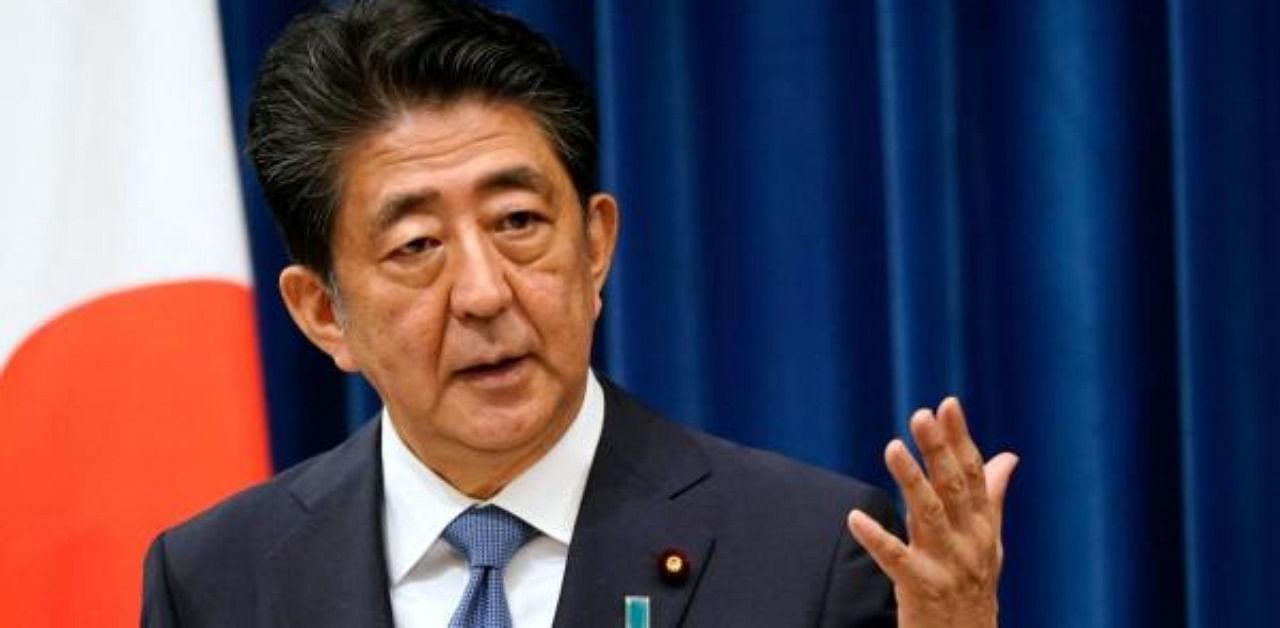
Japanese Prime Minister Shinzo Abe, the nation's longest serving premier, said on Friday he is resigning due to health reasons.
Here is what some international leaders and businesspeople are saying about Abe:
US President Donald Trump:
"I want to pay my highest respect to Prime Minister Shinzo Abe ... a great friend of mine," Trump told reporters on Air Force One. "I just feel very badly about it."
Trump said Abe loved his country very much, adding that he planned to call the Japanese leader.
British Prime minister Boris Johnson
"@AbeShinzo has achieved great things as PM of Japan - for his country and the world," Johnson said on Twitter.
"Under his stewardship the UK-Japan relationship has gone from strength to strength in trade, defence and our cultural links. Thank you for all your years of service and I wish you good health."
Russia:
The Kremlin regrets that Prime Minister Shinzo Abe has decided to step down, spokesman Dmitry Peskov said, describing working relations between Abe and President Vladimir Putin as "brilliant".
Australian prime minister Scott Minister:
"Prime Minister Abe is a man of integrity and wisdom. He has been the senior statesman in our region and across the globe, a strong promoter of open trade and an outstanding international diplomat for Japan. He has advocated for the region's prosperity and stability, bringing his leadership as an experienced statesman of the first order.
"Prime Minister Abe steps down as a regional leader having made unprecedented contributions, particularly as we respond to the health and economic impacts of Covid-19."
Taiwan president Tsai Ing-Wen:
“Prime Minister Abe was always friendly to Taiwan, whether on policy or the rights and interests of Taiwan’s people – he was extremely positive. We value his friendly feelings towards Taiwan and hope he is healthy.”
Kwong Tae-Shin, Vice Chairman of the Federation of Korean Industries, a South Korea business lobby group:
"President Moon Jae-in and Abe do not have good personal relationship, which contributed to adverse bilateral ties. When a new leader takes office in Japan, he can give momentum to improving bilateral relations. The two countries acknowledge that unnecessary diplomatic and trade conflicts would not help each other at a time when Covid-19 further adds difficulty to trade and business activities globally."
Marcus Schrumann, CEO, Geramn Chamber of Commerce and Industry in Japan:
“He did a lot of good with regards just to the fact that he was one of the key promoters for multilateralism and free trade and did a lot to move to Japan back onto the world stage. Japan recovered the visibility and recognition the third-largest economy in the world deserves.
“We have FTAs and he also tackled a lot of difficult problems. Just thinking about relations with China, relations also with Russia, and also the difficult relationship with the U.S. at least since Trump came into power.
"I do not want to say he failed, but at least what is an unsolved problem is the relationship was Korea. I think that's the kind of problem which his successor has to work on.
“He succeeded in bringing the Olympics to Tokyo. I think this is also a major achievement we should not forget.”